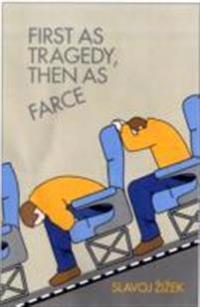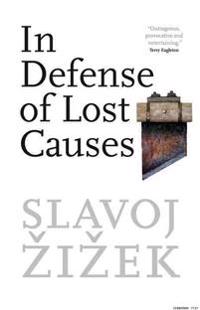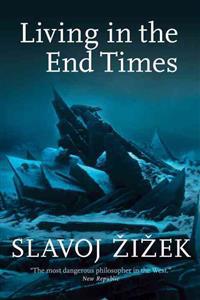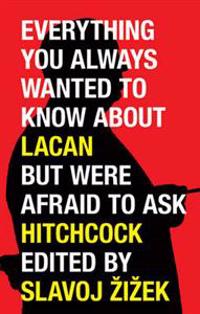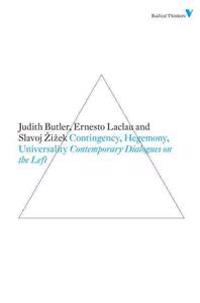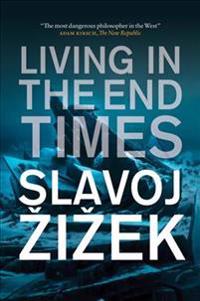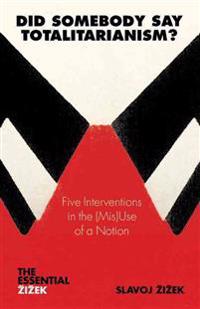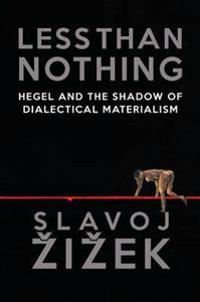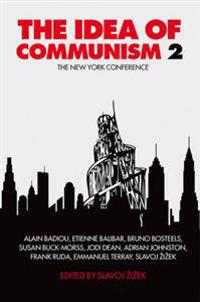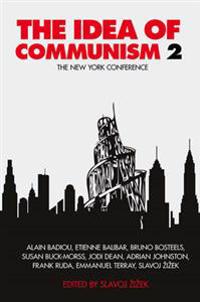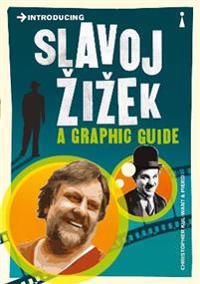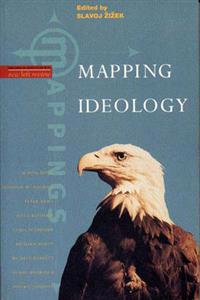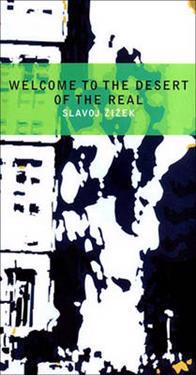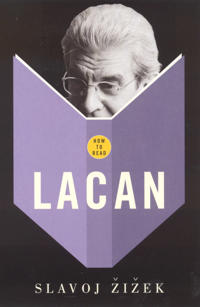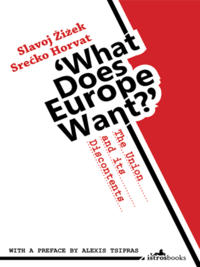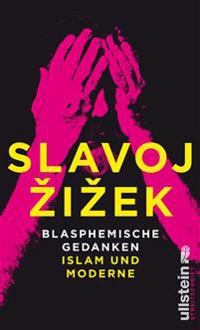In Search of Wagner (Häftad)
avTheodor W. Adorno, Slavoj Zizek
ISBN: 9781844673445 - UTGIVEN: 2009-05Written in exile from Germany, this potent study of Europe's most controversial composer explodes the frontiers of musical and cultural analysis. Measuring key elements of Wagner's oeuvre with patent musical dexterity, Adorno sheds light on a nineteenth-century bourgeois figure whose operas betray t[...]
First As Tragedy, Then As Farce (Häftad)
avSlavoj Zizek
ISBN: 9781844674282 - UTGIVEN: 200910From the tragedy of 9/11 to the farce of the financial meltdown
In this bravura analysis of the current global crisis following on from his bestselling Welcome to the Desert of the Real, Slavoj Zizek argues that the liberal idea of the âend of history,â declared by Francis Fukuy[...]In Defense of Lost Causes (Häftad)
avSlavoj Zizek
ISBN: 9781844674299 - UTGIVEN: 200910Is global emancipation a lost cause? Are universal values outdated relics of an earlier age? In this combative major new work, philosophical sharpshooter Slavoj A iA ek takes on the reigning ideology with a plea that we should reappropriate several lost causes, and looks for the kernel of truth in t[...]
Iraq (Pocket)
avSlavoj Zizek
ISBN: 9781844675401 - UTGIVEN: 2005-11In order to render the strange logic of dreams, Freud quoted the old joke about the borrowed kettle: (1) I never borrowed a kettle from you, (2) I returned it to you unbroken, (3) the kettle was already broken when I got it from you. Such an enumeration of inconsistent arguments, of course, confirms[...]
The Indivisible Remainder (Häftad)
avSlavoj Zizek
ISBN: 9781844675814 - UTGIVEN: 200612The feature which distinguishes the great works of materialist thought, from Lucretius De rerum natura through Capital to the writings of Lacan, is their unfinished character: again and again they tackle their chosen problem. Schelling s Weltalter drafts belong to this same series, with their repeat[...]
Virtue and Terror (Häftad)
avMaximilien Robespierre, Slavoj Zizek
ISBN: 9781844675845 - UTGIVEN: 200701Robespierre's defense of the French Revolution remains one of the most powerful and unnerving justifications for political violence ever written, and has extraordinary resonance in a world obsessed with terrorism and appalled by the language of its proponents. Yet today, the French Revolution is cel[...]
Living in the End Times (Inbunden)
avSlavoj Zizek
ISBN: 9781844675982 - UTGIVEN: 201005There should no longer be any doubt: global capitalism is fast approaching its terminal crisis. Slavoj Zizek has identified the four horsemen of this coming apocalypse: the worldwide ecological crisis; imbalances within the economic system; the biogenetic revolution; and, exploding social divisions [...]
Everything You Wanted to Know About Lacan But Were Afraid to Ask Hitchcock (Häftad)
avSlavoj Zizek
ISBN: 9781844676217 - UTGIVEN: 201006Hitchcock gets onto the analyst's couch in this extraordinary volume of case studies. The contributors bring to bear an unrivalled enthusiasm and theoretical sweep on the entire Hitchcock oeuvre, from "Rear Window" to "Psycho", which is shown to be an exemplary source of postmodern defamiliarization[...]
Contingency, Hegemony and Universality (Häftad)
avSlavoj Zizek, Ernesto Laclau, Judith Butler
ISBN: 9781844676682 - UTGIVEN: 201012The Hegelian legacy, Left strategy, and post-structuralism versus Lacanian psychoanalysis.
Living in the End Times (Häftad)
avSlavoj Zizek
ISBN: 9781844677023 - UTGIVEN: 201104The underlying premise of the book is a simple one: the global capitalist system is approaching an apocalyptic zero-point. Its four riders of the apocalypse are the ecological crisis, the consequences of the biogenetic revolution, the imbalances within the system itself (problems with intellectual p[...]
Did Somebody Say Totalitarianism? (Häftad)
avSlavoj Zizek
ISBN: 9781844677139 - UTGIVEN: 201108Totalitarianism has always had a precise strategic function: to guarantee the liberal democratic hegemony by dismissing the Leftist critique of liberal democracy as the two-faced twin of Right-wing dictatorships. Instead of providing yet another systematic exposition of the history of this notion, Z[...]
Less Than Nothing (Inbunden)
avSlavoj Zizek
ISBN: 9781844678976 - UTGIVEN: 201205For the last two centuries, Western philosophy has developed in the shadow of Hegel, whose influence each new thinker tries in vain to escape: whether in the name of the pre-rational Will, the social process of production, or the contingency of individual existence. Hegel's absolute idealism has bec[...]
The Idea of Communism 2 (Häftad)
avSlavoj Zizek
ISBN: 9781844679805 - UTGIVEN: 201305The very successful first volume followed the 2009 conference called in response to Alain Badiou's "communist hypothesis," where an all-star cast of radical intellectuals put the idea of communism back on the map. This volume brings together papers from the subsequent 2011 New York conference organi[...]
The Idea of Communism 2 (Inbunden)
avSlavoj Zizek
ISBN: 9781844679812 - UTGIVEN: 201305The very successful first volume followed the 2009 conference called in response to Alain Badiou's "communist hypothesis," where an all-star cast of radical intellectuals put the idea of communism back on the map. This volume brings together papers from the subsequent 2011 New York conference organi[...]
Violence (Häftad)
avSlavoj Zizek
ISBN: 9781846680274 - UTGIVEN: 200901Argues that the physical violence we see is often generated by the systemic violence that sustains our political and economic systems. With the help of eminent philosophers and frequent references to popular culture, this title examines the causes of violent outbreaks like those seen in Israel and P[...]
Introducing Slavoj Zizek (Häftad)
avChristopher Kul-Want
ISBN: 9781848312937 - UTGIVEN: 201109Dubbed "The Elvis of Philosophy," Slavoj Zizeck is both a serious revolutionary and an absurdist prankster, published in academic journals and Abercrombie & Fitch catalogs. Besides his work on popular culture, Zizek is concerned with politics and ideology. "Introducing Slavoj Zizek "reveals a provoc[...]
Introducing Slavoj Zizek (e-bok)
avChristopher Kul-Want
ISBN: 9781848317765Charting his meteoric rise in popularity, Christopher Kul-Want and Piero explore Zizek's timely analyses of today's global crises concerning ecology, mounting poverty, war, civil unrest and revolution.Covering topics from philosophy and ethics, politics and ideology, religion and art, to literature,[...]
Mapping Ideology (Häftad)
avSlavoj Zizek
ISBN: 9781859840559 - UTGIVEN: 199502Not so long ago, the term ""ideology"" was in considerable disrepute. Its use had become associated with a claim to know a truth beyond ideology, a radically unfashionable position. What then explains the sudden revival of interest in grappling with the questions that 'ideology' poses to social and [...]
Welcome to the Desert of the Real (Häftad)
avSlavoj Zizek
ISBN: 9781859844212 - UTGIVEN: 200208On September 11, the USA was given the opportunity to realize what kind of a world it was a part of. It might have taken this opportunity - but it did not; instead it opted to reassert its traditional ideological commitments: out with feelings of responsibility and guilt towards the impoverished Thi[...]
How to Read Lacan (Häftad)
avSlavoj Zizek
ISBN: 9781862078949 - UTGIVEN: 200609Lacan reminds us that psychoanalysis is the only discourse in which you are allowed not to enjoy. Since for Lacan psychoanalysis itself is a procedure of reading, here, each chapter uses a passage from Lacan as a tool to interpret another text from philosophy, art or popular ideology.[...]
What Does Europe Want? (Häftad)
avSlavoj Zizek, Srecko Horvat
ISBN: 9781908236166 - UTGIVEN: 2013-10Slavoj Zizek - Die Bedeutung Von Jouissance Fur Franz Kafkas "Proze" (häftad)
ISBN: 9783638691925 - UTGIVEN: 2007-07Slavoj Zizek zwischen Lacan und Hegel (Häftad)
avDominik Finkelde
ISBN: 9783851325287 - UTGIVEN: 2009-06


